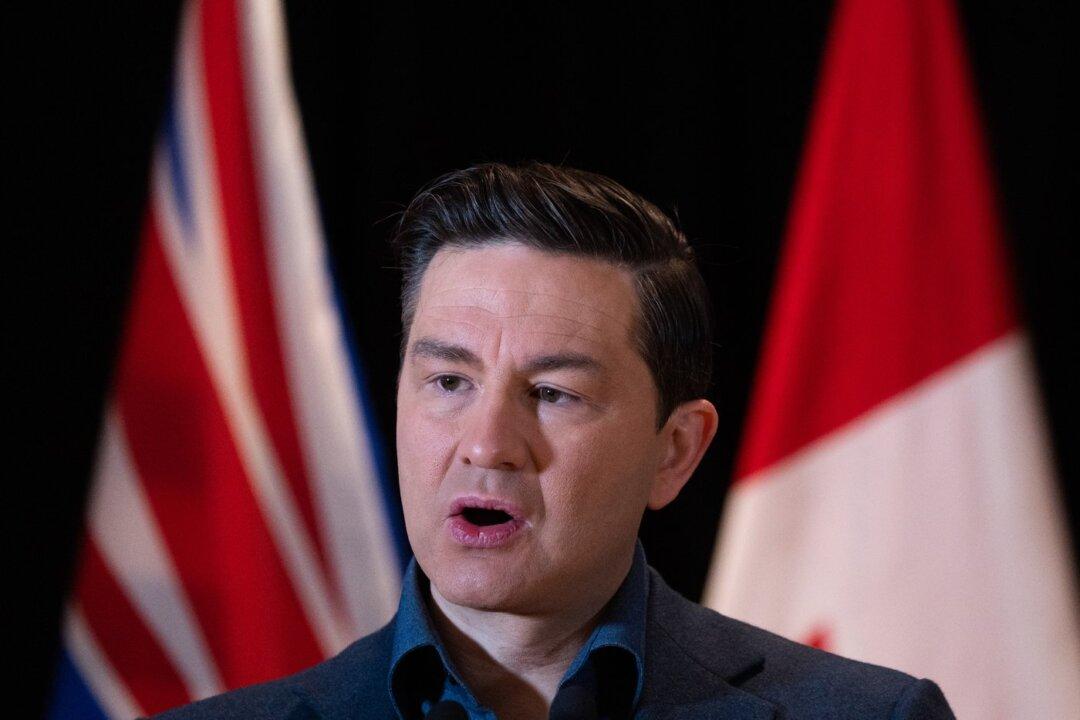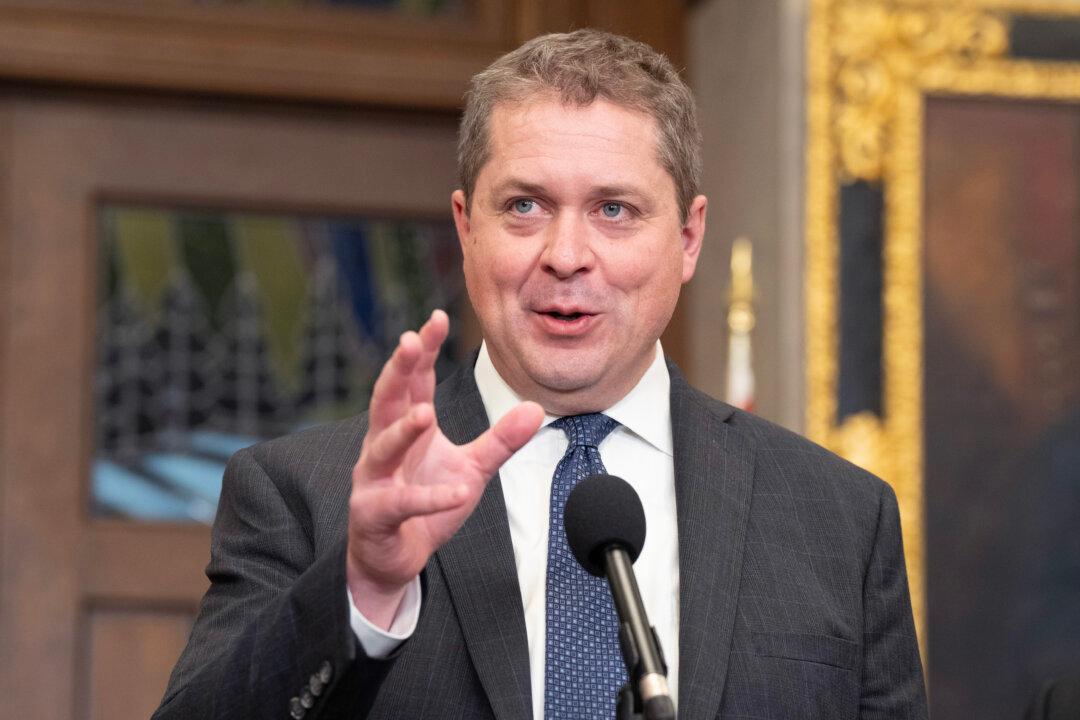Conservative Leader Pierre Poilievre is calling on the federal government to implement a number of measures to “protect the freedom and security of Canadians” such as banning the Islamic Revolutionary Guard Corps (IRGC), establishing a foreign agent registry, and eliminating “red tape” on the country’s security infrastructure program.
Mr. Poilevre said cost-of-living woes, “divisive” federal policies, and “weak laws” have led to a rise in hate crimes, violence, and “desperation” in the country. He also called on the federal government for a review of Canada’s terrorist threat assessment, citing the U.K. government’s recent assessment that an attack in Canada was “very likely.”





